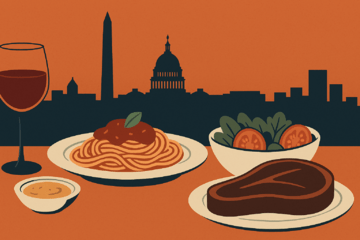
How to Talk With Your Family About Marijuana Use
Published on 11/11/20
Marijuana continues to gain legality and its cultural acceptance is steadily on the rise - however, there are still a lot of people that don't understand cannabis or the culture that surrounds it. Especially if you're an active user or advocate of marijuana, discussing cannabis with family can prove to be an incredibly uncomfortable situation; and since the holidays are fast approaching, there's a chance you may soon find yourself around the dinner table having the marijuana talk. While there's no one correct way to discuss marijuana use (every situation is different), we've put together a few ways to consider having a talk with your family about weed.
The Legality of Marijuana in America
Knowing where and why marijuana is legal can make big difference when discussing marijuana with your family, especially if they aren't a proponent of legalization. Recreational marijuana is currently legal in 15 states: Colorado, Washington, Alaska, Oregon, California, Maine, Massachusetts, Nevada, Vermont, Michigan, Arizona, Montana, New Jersey, South Dakota and Illinois. Medical marijuana is currently legal in more states than not, with a total of 35 state medical marijuana programs. If you want even more talking points, consider looking into marijuana's legality in different countries.
The Social Stigma of Marijuana in America
People that don't approve of marijuana, either actively or passively, hold their beliefs for many reasons. One pervasive reason that probably accounts for a majority of our culture's apprehension toward marijuana is a long history of anti-cannabis laws and regulations. Back in the 70s, when the War of Drugs officially began, over 80% of adults believed marijuana should remain illegal, a statistic that has slowly dropped since.

According to the Pew Research Center, the percentage of people who oppose the legalization of marijuana has decreased from 52% in 2010 to 32% in 2019. The government has long worked to systematically tie marijuana use to minorities and marginalized communities, largely creating a social stigma through propaganda and consistent regulation. While people are trending toward acceptance, there is still largely a stigma against marijuana because it has so long been seen as a dirty, irredeemable drug that decent citizens should not support. 50 years of anti-cannabis rhetoric has ensured that views against marijuana will not die silently - but, fortunately, it does not mean minds can't be changed.
How to Have a Positive Conversation about Marijuana
How you address this topic will depend on factors such as how open your family is to other types of activism, their history with cannabis, and your personal stance (to name a few). So, while we can't give you a complete "how-to" guide, here is our overview of the basics you should keep in mind when talking to your family about marijuana.
How to Start the Conversation
We suggest opening the conversation with a few questions. How you enter the conversation will help set the entire discussion's tone. Be positive and upbeat about it, and start by asking questions. Make the discussion an academic practice. Rather than list off everything you know about marijuana and saying you're right, get your family involved and get them talking, thinking, and processing. Here are a few questions to consider asking:
- What are your views on marijuana? Why?
- Have you ever tried marijuana?
- What do you know about marijuana?
- Have you ever thought about trying marijuana?
- Have you heard the latest news about marijuana legality?
There are so many questions you can start the conversation with - it's really about reading your family and figuring out what question is going to engage them in a positive, level-headed way.
Read Up on Marijuana's Medical Benefits

Knowing the benefits of marijuana is a key factor in actually getting your family (or anyone) to understand cannabis. Sure, a lot of us enjoy using marijuana recreationally, but there are a lot of people that use weed for medical reasons. Marijuana has been used for thousands of years, both recreationally and medicinally - understanding the history of marijuana, especially its medical purposes, can go a long way in explaining how modern views are often skewed by politics and overarching agendas as opposed to the truth of what marijuana is and can be. Read up on what states have legalized medical marijuana, why, how it is used, and what research is being conducted to further our understanding of its benefits.
Ask Questions and Understand Why People Might Not Like Marijuana
We suggest starting the conversation with a question, but we also suggest keeping the conversation question oriented. Since there is a chance your family might not be okay with marijuana use, it's incredibly beneficial to be prepared to face pushback, denial, or defensive questions in return. Negative views against marijuana are largely a product of social conditioning and, as the data proves, can be changed with the proper exposure. Consider your family's responses, react positively, and continue asking questions that promote critical thinking.
Know How to Answer Questions about Marijuana's Negative Effects

The truth is that there are unknowns about marijuana use as research catches up to legalization and cultural relevance, and we know that smoking is innately not a healthy activity. That being said, there are a lot of other ways to consume marijuana, and there are studies that suggest smoking marijuana is less harmful than smoking cigarettes or drinking. Know the ins-and-outs of how marijuana can be harmful, that way you can focus on the positive and help frame the negative aspects within a larger context of facts and understanding.
Be Prepared to Address Other Major Issues
Last, but absolutely not least, is understanding that marijuana discussions can quickly turn into discussions about much more controversial things. Marijuana activism and the history of cannabis in America is directly tied to so many other social issues, including the politics surrounding the war on drugs, pride and the LGBTQ+ community, BIPOC and the systematic racism that pervades our political and cultural systems and institutions, etc. Cannabis policy and the social stigmas against it are often tied to heavy issues that might be much more difficult to discuss, but they are also that much more necessary to address.
Have you had the marijuana talk with your family? Let us know how it went, what you talked about, and how you went about conducting the discussion. And if you have any questions about having the marijuana talk, post your comments and concerns below!



















